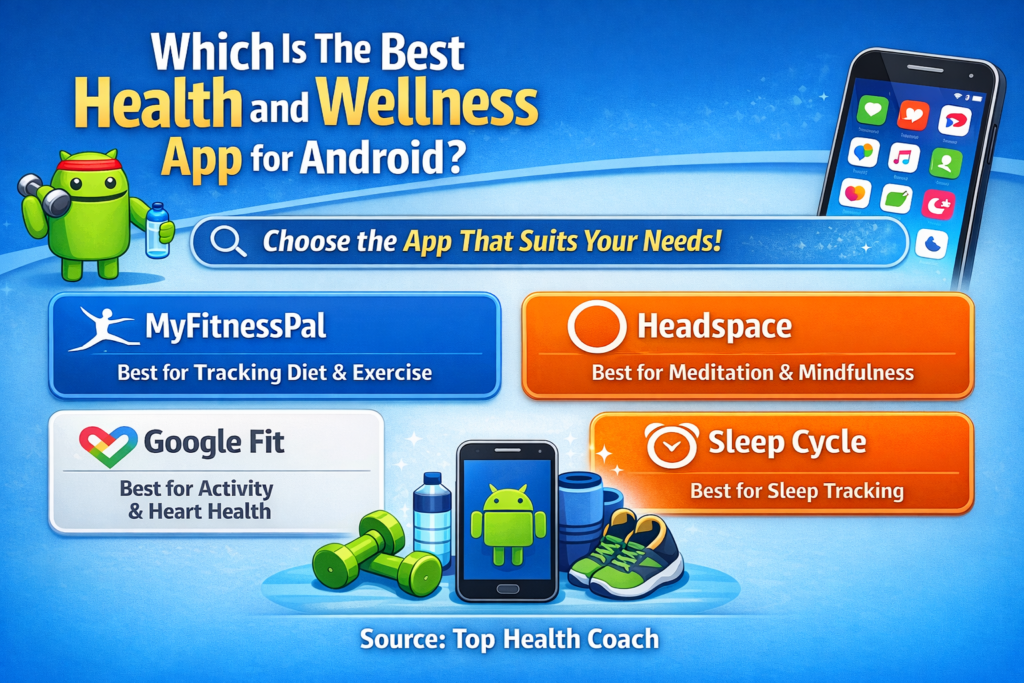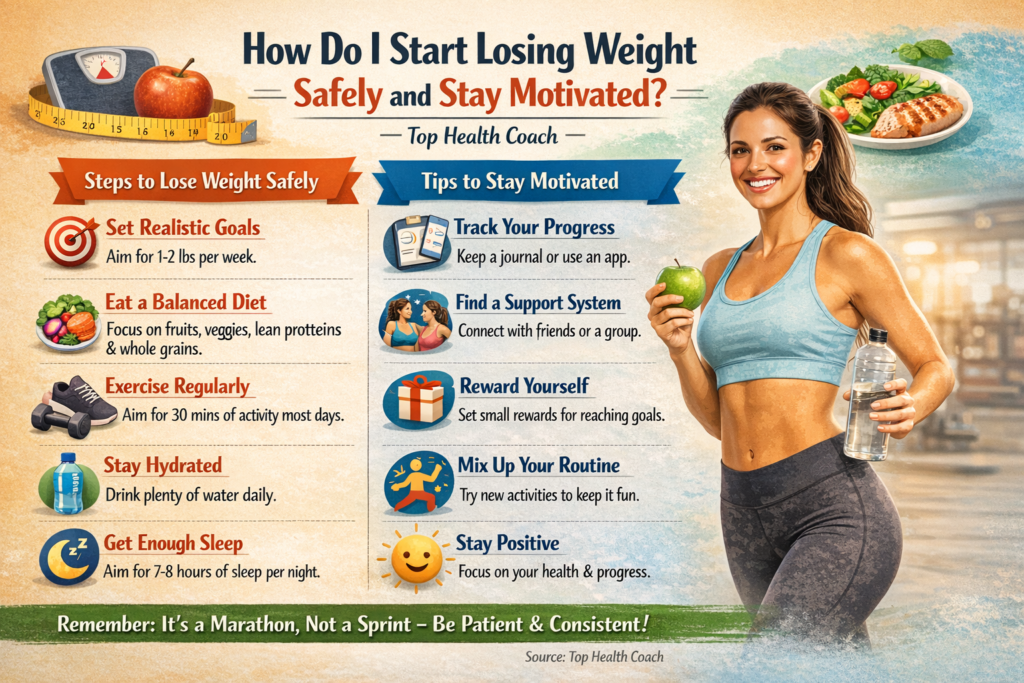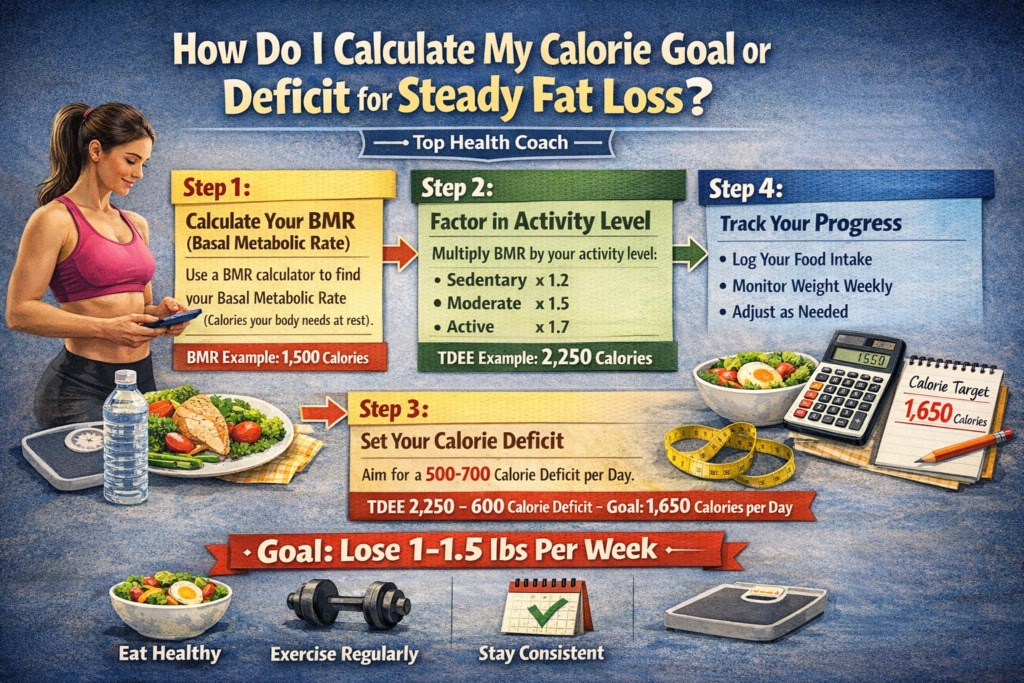Have you ever wondered what would happen to your body if you stopped eating for a week but kept drinking water? Fasting is a practice that’s been around for centuries, often for religious, spiritual, or health reasons. But with more people turning to extreme fasting methods for weight loss or “detoxing,” it’s important to understand the real effects.
In this article, we’ll dive into what happens to your body when you go on a 7-day water fast, share expert Health Tips, and answer 20 frequently asked questions about water fasting, as recommended by a Top Health Coach.
Understanding Water Fasting
Water fasting means consuming only water—no food, no juice, no coffee, and no tea. It’s an extreme form of fasting that should not be taken lightly. While some people report mental clarity, spiritual insight, and weight loss, it’s not without risks.
What Happens Day by Day?
Day 1: Hunger and Headaches
You’ll feel hungry within hours. Blood sugar levels drop, leading to fatigue, irritability, and sometimes headaches. Your body starts using glycogen (stored carbs) for energy.
Day 2–3: Ketosis Begins
Once glycogen stores are depleted, your body enters ketosis, where fat is burned for energy. This can cause bad breath, nausea, and dizziness. Hunger may start to decrease.
Day 4–5: Muscle Loss
While fat is burned, your body may also start breaking down muscle tissue for energy, especially if you’re not fat-adapted.
Day 6–7: Mental Fog or Clarity
Some people experience mental clarity and a sense of calm. Others feel brain fog and extreme fatigue. Dehydration and electrolyte imbalances are real risks, even if you’re drinking water.
Benefits of a 7-Day Water Fast (According to a Top Health Coach)
- Rapid weight loss: Mostly from water and glycogen depletion.
- Detoxification: The liver and kidneys get a break.
- Improved insulin sensitivity
- Autophagy: The body may start cleaning up damaged cells.
- Mental clarity (in some cases)
Health Tip: Never start a long fast without speaking to a medical professional or a Top Health Coach.
Dangers of a 7-Day Water Fast
While short-term fasting can be beneficial, extended water fasting can have serious downsides:
- Electrolyte imbalance (can lead to heart problems)
- Nutrient deficiencies
- Muscle loss
- Fatigue, brain fog
- Dehydration if not enough water is consumed
- Hypoglycemia or low blood pressure
Who Should NOT Water Fast?
- Pregnant or breastfeeding women
- Diabetics (especially Type 1)
- Those with eating disorders
- People with chronic illnesses or on medication
- Children or teenagers
Health Tip: Always get guidance from a healthcare provider or Top Health Coach before starting any extreme diet.
Best Practices If You Decide to Try It
- Consult a Top Health Coach before beginning.
- Hydrate often — drink at least 2–3 liters of water daily.
- Rest frequently — don’t push your body.
- Break the fast gently — don’t binge afterward.
- Monitor how you feel — dizziness, chest pain, or extreme weakness are red flags.
What Happens After the Fast?
Once you start eating again, your body might react strongly. If you binge or eat heavy foods immediately, you could suffer from refeeding syndrome, which is dangerous.
Health Tip: Break your fast with light, nutrient-rich foods like bone broth, smoothies, or steamed vegetables.
20 Frequently Asked Questions (FAQs)
1. Can I lose weight on a 7-day water fast?
Yes, but much of it will be water weight and muscle loss, not just fat.
2. Is water fasting safe for everyone?
No. It’s only safe under supervision for healthy individuals.
3. How much water should I drink daily?
2 to 3 liters minimum, more if you’re sweating or in a hot climate.
4. Will I enter ketosis?
Yes, usually after 2–3 days without food.
5. Do I need electrolytes?
Yes. A lack of sodium, potassium, and magnesium can be dangerous.
6. Can I drink coffee or tea during the fast?
Not during a true water fast. Only plain water is allowed.
7. Will I feel tired during the fast?
Most people do, especially by days 3–5.
8. What are the signs I should stop the fast?
Severe dizziness, chest pain, confusion, or fainting.
9. Will I lose muscle?
Yes. Some muscle loss is inevitable during long fasts.
10. Can I exercise while fasting?
Light activity is okay, but intense exercise is discouraged.
11. Can fasting help with digestion?
It gives your digestive system a break, which some people find helpful.
12. Can fasting improve mental clarity?
Some report clarity, especially after day 3, but others feel brain fog.
13. Is autophagy real?
Yes, but the exact timing and benefits vary by person.
14. Will fasting cure diseases?
It’s not a cure, though it may help with some metabolic conditions. Always consult a doctor.
15. Can I fast if I’m underweight?
No, it’s risky and not recommended.
16. Can I take supplements during the fast?
Generally not during a strict water fast. Ask a Top Health Coach for guidance.
17. How do I break the fast safely?
Start with liquids like bone broth or smoothies, then light solid foods.
18. What’s refeeding syndrome?
A dangerous condition caused by eating too much too fast after fasting.
19. Will my metabolism slow down?
Yes, especially after several days of no calories.
20. Should I talk to a professional before fasting?
Absolutely. It’s essential to consult with a Top Health Coach or medical expert.
Final Thoughts
A 7-day water fast is not a casual challenge—it’s a significant strain on your body that can bring both benefits and risks. While some people turn to it for weight loss or spiritual growth, it must be approached with caution, preparation, and professional guidance.
Top Health Coach Advice: Short-term fasts (12–24 hours) can be a safer and more effective health tool for most people. Long-term fasting should never be done without supervision.
Bonus Health Tips for Safer Fasting
- Try intermittent fasting first to see how your body reacts.
- Avoid fasting during stressful periods.
- Track your mood, weight, and symptoms in a journal.
- Prioritize sleep – your body needs rest to recover.
- Stay positive but realistic about results.
Remember: Your health is an investment, not an experiment. Extreme diets can do more harm than good when done incorrectly. Talk to a certified Top Health Coach or medical professional before making big changes.




